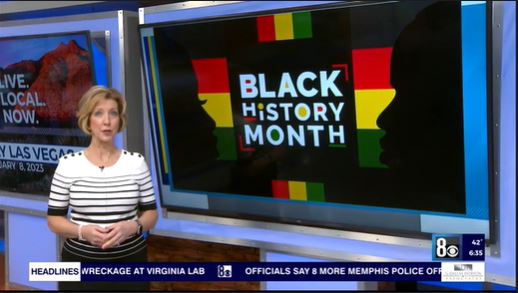
Barriers often keep Black community from seeking help for mental health
by: Candese Charles
LAS VEGAS (KLAS) — On Tuesday the Biden administration announced a plan to transform how the nation understands and treats mental health.
It’s a community-wide issue, and as Black History Month is honored, it’s important to note that seeking help can be difficult, especially in the Black community.
All ethnicities and cultures experience mental health conditions, but according to the U.S. Department of Health and Human Services, only one in three Black adults who need mental health care actually receive it.
This is rooted in a history of systematic racism and oppression. In the late 18th century, white physicians and mental health professionals believed Black slaves felt less pain, and if they complained about any medical procedures, it was seen as a mental illness, leading to a foundation of suffering in silence.
“Getting through some of those cultural norms is huge because they are barriers,” Dr. Sheldon Jacobs, a Las Vegas valley family and marriage therapist, said.
One study showed 63% of Black people believe having a mental health condition is a sign of personal weakness.
“I think for African-Americans the mentality has been that life has been rough being Black in America so you do what you have to do to survive. You don’t have time to complain, you don’t have time to stop,” UNLV Assistant Professor of African-American Studies Tyler Parry said.
Gina Hill has been dealing with her mental health alone for over 30 years. Her daughter started therapy at 13 after a traumatic incident while Hill suffered in silence until she lost her sister during the COVID-19 pandemic.
Hill’s first stop was not at a doctor’s office, but rather, at a church.
“I had reached the end of myself,” Hill said. “People would want to pray, and I would pray, but I was still battling.”
For many Black people, church is often the first and only stop. Roughly 98% of psychiatrists are white, so the church was and still is perceived as the only place to lay down your burdens with someone who looks like you.
“Black Americans were effectively disenfranchised from any discussion about mental health,” Parry added.
Not only is there a lack of access to help, but there is a lack of Black mental health professionals, even though studies show that Black adults are 20% more likely to experience mental health disorders.
The good news is that recent studies have shown that college aged Black people are seeking mental health help at a higher rate. The hope is that they will be more likely to care for their children’s mental health in the future.
For Hill, helping her child early made all the difference.
“She actually is just getting her master’s degree in mental health counseling,” Hill said.
8 News Now has compiled a list of places where people might go for help locally. You can find a link to Dr. Sheldon Jacobs here and we have a list of churches and other resources below:
- Antioch Ministries in Aliante – Senior Pastor is Naida M. Parson, Ph.D. with a mental health background.
- First African Methodist Church – Senior Pastor is Dr. Karen Anderson.
- Nehemiah Ministries – Senior Pastor is Kelcey West and there is a wellness ministry led by Sherita Childress, LCSW.
- Second Baptist Church – Rev. Clayton D. Moore and there is a wellness ministry led by Dr. Courtney Dandy-Fralick.
- CALL 211
- NAMI of Southern Nevada
- Solutions of Change
- HOPE Means Nevada
- AFSPNevada